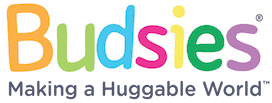Many kind, caring parents feel themselves bad when it comes to disciplining their children. It’s a complicated thing: you have to somehow teach children to behave and that includes disciplining them for misbehavior as well. However, you have to be sure that the method of discipline you choose will help and won’t affect your child in a bad way.
We know that physical punishment is bad. Yelling is also bad: this way we teach our children to act aggressively in complicated situation. Disciplining with isolation is bad too: children feel like they are left on their own, without our guidance, warmth, and help. These kinds of discipline won’t work and can even lead to more misbehavior: after all, when someone treats you so badly, you too don’t want to behave, right? Moreover, such punishments can cause various traumas and psychological problems.
What to do then? Is there any kind of “right” discipline that could actually help both you and your child? The answer is yes. You can teach your child to behave using other, more appropriate ways.
Remember that You Are A Role Model
Being a parent means being a role model to your children. Yes, this requires a lot of responsibility. Children learn from us and our behavior, so if you lose your temper easily, no wonder that you baby has troubles with controlling their own temper too. Learning to control yourself is hard, but you’ll be able to do it eventually.
Act as calm as possible, no matter how bad the situation seems to you. Avoid lashing out on your children even if they do misbehave. Everything you need to tell them can be told in a calm voice.
Explain Things
Sadly, some parents do think that spanking is more effective than words. However, children need to understand why they misbehave, why the things they do are considered wrong. If an incident happened outside, you can talk with your child when you get home, and if it happened at home, you can talk right away. This will allow your baby to understand what’s wrong. Moreover, this way you’ll pay attention to your children instead of disciplining them and pushing away from them. Sometimes children misbehave only because they crave your attention. That’s why if you give it to them, it’s quite possible that misbehaving will stop.
Set Limits
The limits have to be set. However, it has to be done wisely. It can be hard for a child to remember too many rules, that’s why you need to focus on the most important ones first. Explain all the basic rules clearly, then tell your baby what will happen if someone breaks them and why it would be bad. Instead of spanking your child or punishing them with bitter words for crossing these limits, try to come up with discipline that incorporates structure. For example, if a child makes a mess, they have to clean it before going outside. Be sure that these consequences are always related to the misbehavior: this way it will be easier for a child to understand them.
You have to be understanding too. Sometimes children misbehave because of their emotions, so it’s up to you to calm them down and to tell them they can make another, better choice next time. For example, if your child was mad at someone and pushed that person, you have to tell them it’s not the right thing to do. Advise a child telling their feelings in words, not demonstrating them in rude actions.
Educate Your Child
Discipline comes from learning. That’s why you have to teach your child well to ensure they’ll make better choices later. If you want to ask your child to do something, speak in calm voice and use polite words. Teach your child to be polite with the others too. Praise them often and explain why. For example, say: “I see you’ve cleaned your room and done it so well! Thank you! I am so grateful for your help!” “Thank you for offering the last cookie to Elisa. That was so kind!” Children like being praised by their parents, so this will encourage them to make better choices.
You also have to teach your child to held responsibility for their mistakes. For example, if they broke a toy, they have to try fixing it. If they spilled a glass of juice, they have to clean the mess. The most important thing here is to teach them kindly, not shame or yell at them.
Say “Yes” More Often
“No” is a quite negative word. You have to try saying “Yes” more often when you want to ask your child to do something: this makes your request sound more positive. And a child is willing to do almost everything if a parent asks that in a more positive way.
Just compare these two requests: “No, I need you to stop doing this and start cleaning your room” and “Yes, it’s time to start cleaning, I will help you with that”. The difference is small, but it still matters.
Parenting requires a lot of patience and hard work, but if you want to make your child’s life better, you’ll be able to adjust your parenting methods and become a true inspiration to your kid. Moreover, you can even become an example to your friends who have their own children. I wish you good luck with that!



